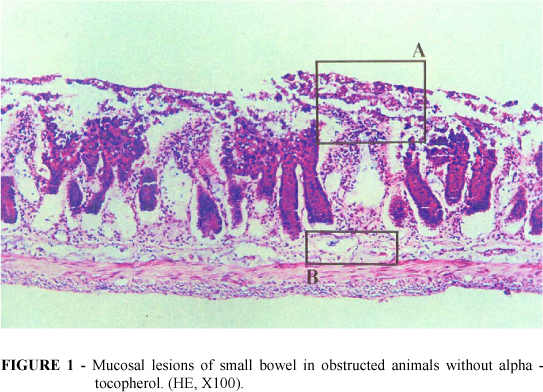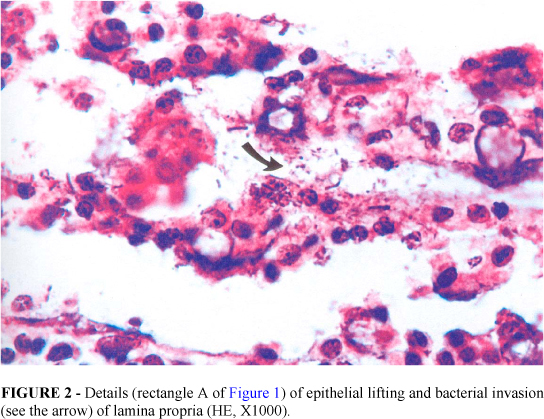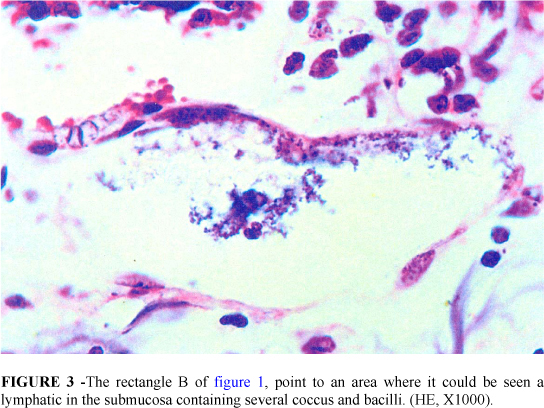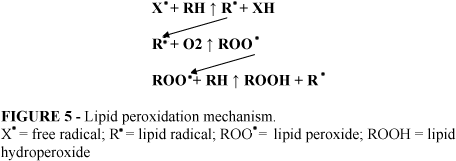PURPOSE: Investigate if alpha-tocopherol has a protective effect on intestinal mucosa after obstruction and to evaluate the potential relations between lipid peroxidation and bacterial translocation. METHODS: Ten rats were submitted to a sham laparotomy and six served as control group. A small bowel obstruction was done in sixteen animals and among them eight were pretreated with alpha-tocopherol. Forty-eight hours later, mesenteric lymph node, spleen, liver and blood cultures and also samples from ileal mucosal were obtained, Thiobarbituric acid reactive substances (TBARS) levels were determined and intestinal histological assessment was performed. RESULTS: Bacterial translocation was significantly increased in the obstructed rats compared with the control, sham and antioxidant pretreated groups (p< 0,05). TBARS (nmol/100mg) in untreated obstructed rats increased from 49,0 ± 13,3 in control group to 128,8 ± 40 after 48 hours of intestinal obstruction and achieved 72,3 ± 24,6 in alpha-tocopherol group (p< 0,05). Bacterial adherence to the intestinal epithelial cells surface and mucosal necrosis were significantly increased in the obstructed compared with nonobstructed rats. CONCLUSION: Alpha-tocopherol reduce the deleterious effects of the TBARS over the intestinal mucosal suggesting that in such circumstances there might be an association between bacterial translocation and lipid peroxidation after an intestinal occlusion.
Free radicals; Bacterial translocation; Lipid peroxidation








